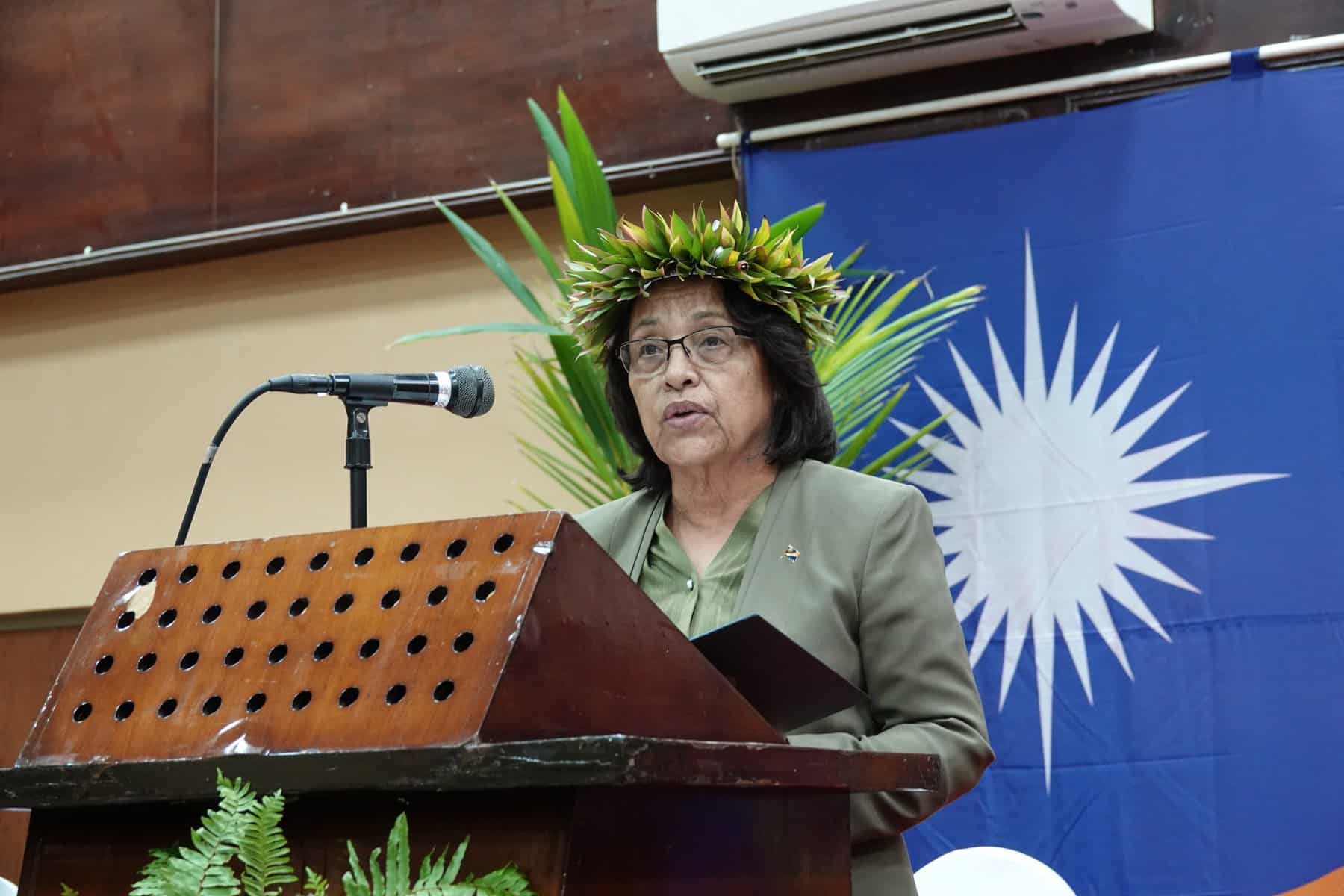While both Palau and the Federated States of Micronesia (FSM) have endorsed their new Compacts of Free Association with Washington, the Marshall Islands just launched its review process Thursday with the first of a series of public hearings to engage islanders living in Majuro and Ebeye, the two main urban centers.
The Palau and Micronesia congresses passed legislation earlier adopting the new 20-year Compact funding package, and Presidents Surangel Whipps Jr. of Palau and Wesley Simina of the FSM both signed in the past two weeks’ diplomatic notes with U.S State Department officials confirming the endorsement.
The new 20-year funding period will provide approximately US$3.3 billion to the FSM, US$2.3 billion to the RMI and US$890 million to Palau, as well as over US$600 million to fund U.S. Postal Service mail delivery in the freely associated states.
The Marshall Islands Nitijela (parliament) had been on a brief recess, but on its first day back following President Joe Biden signing the Compact funding package into law in the U.S, on 18 March, Foreign Minister Kalani Kaneko was joined by multiple Cabinet ministers in introducing a resolution to endorse the new funding package in the Compact of Free Association and a companion bill for implementation of the new Compact for the 2024-2043 period.
The Nitijela promptly scheduled two weeks of public hearings in Majuro and Kwajalein to get public reaction and input on the new Compact. The Compact is expected to be endorsed by early next month following the parliament review.
But the U.S nuclear test legacy in the Marshall Islands remains an open question as to how it will play out in the implementation phase of the new Compact funding period. The new Compact will bring U.S government injection of US$700 million over four years into the Marshall Islands Compact trust fund.
Resolution No. 11 “to approve the amendments comprising the 2023 Compact of Free Association, as Amended…” spells out in detail the intent of Nitijela and the nation for the use of funding in the new Compact, including to address the nuclear legacy. The resolution states clearly that in relation to the Marshall Islands trust fund, “it is the understanding of the Nitijela that along with other purposes, the 2023 Trust Fund Agreement is repurposed to provide revenues…for people in the Marshall Islands to address unmet needs of communities and people impacted by nuclear testing.”
The 11-page resolution devotes two pages to the nuclear test legacy and the Marshall Islands government’s intention to use funding from the new Compact meet needs people affected.
But the Compact’s new trust fund agreement does not mention the word nuclear because the U.S State Department refused to allow negotiators to include any mention of the nuclear legacy in Compact Three. How the intent of Nitijela, as stated in Resolution No. 11, will play out for nuclear legacy funding remains an open question and will depend on the Trust Fund Committee that includes representatives of both the Marshall Islands and U.S governments, including the State Department.
In a session for media held Tuesday this week, top officials from the Departments of State and Interior spoke about the U.S Congress-endorsed Compact Three and their implementation plans.
When asked by Voice of America reporter Jessica Stone how the U.S will handle the nuclear legacy going forward, U.S State Department Senior Advisor Taylor Ruggles noted that it is a “sensitive issue.”
He said the new Compact strikes a balance between the “desire to be responsive to the Marshall Islands’ priorities” while at the same time “respecting the agreement from 1986” — a reference to the first Compact — “wherein we reached a full and final settlement” for nuclear compensation.
Ruggles said the issue would need to be worked out between the two nations, noting that the new Compact “respects the interests and priorities of both countries.”
Nitijela Bill No. 9, Compact of Free Association, As Amended is briefer than the resolution. It will repeal the Compact Act of 2004 for any sections that the new Compact amends.
It further will establish three special funds related to Compact funding that are separate from the Marshall Islands General Fund, which is the main fund the government uses for local taxes and other local revenue sources. These include:
• U.S. Supplemental Health Fund.
• Climate Fund.
• Kwajalein Development Plan Fund.
Resolution No. 11 in addition to the focus on the nuclear legacy also states the Marshall Islands intention to make distributions of money through “Individual Support Distributions” — a reference to the Nitijela-endorsed “universal basic income” program that the government hopes to roll out later in the year for all Marshallese living in the country. Parliament public hearings were held Thursday in Majuro, with more scheduled for the weekend, and next week for Ebeye and other islands in Kwajalein Atoll.
